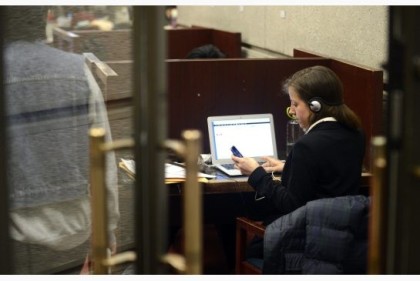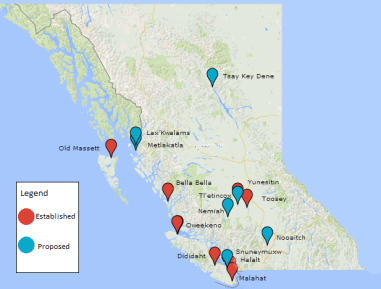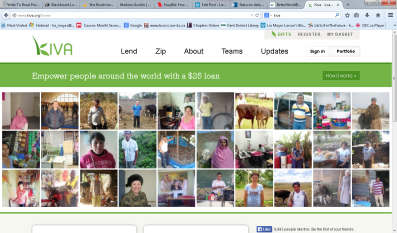I found it very interesting to read about the various international projects Marlene Asselin, Associate Professor in the Department of Language and Literacy Education at the University of British Columbia, is working on to help promote literacy and access to information in developing nations. In an interview on the African Storybook Project (ASP) blog, Asslein (2010) states, “I am concerned about the quality and authenticity of early reading materials that are available to Ethiopian children, which is directly connected to the aims of ASP. In Ethiopia, there are a paltry number of texts completely insufficient to meet the immense need. The majority of those available are either donated from the West, or if in mother tongue, revised/translated and published outside the country. There is urgent need for texts that children and mothers/families can relate to, and the resources and vision to build an Ethiopian culture of writers, illustrators and editors… I am working with Code Ethiopia to help guide development of meaningful early reading materials, but most importantly, working with the community librarians to find innovative ways of bringing children and families into the libraries to share the digital texts and stimulate the generation of meaningful stories/poems/information from the community itself” (para. 5). Access to mobile devices and internet access is key to allowing libraries to expand past limited print materials and create materials in the various languages and traditions practiced in Ethiopia (Asslein, 2010).
Searching for different technology and literacy projects in developing nations for this weeks’ post, I started thinking: How many students in my own school have internet access or books at home? I live in a small town with several rural properties and remote First Nations Reservations. Many of the students at our secondary school have smart phones, but they do not have data plans, wireless internet access, or laptop computers at home. In our Library Learning Commons we have 8 laptops, 25 desktop computers, free guest WiFi, and 10 iPad minis for student use. All of our mobile devices have high circulation. While we still sign out book s for research and reading, the majority of the sources students use for research projects come from the Web. As a librarian, I work closely with students to evaluate the information they find online. If funding for public and school libraries is declining, what impact will this have on access to information and information literacy for our rural and lower socioeconomic communities in Canada?
According to an article by Michael Geist (2013), the Canada Research Chair in Internet and E-commerce Law at the University of Ottawa, there is a growing “digital divide” for internet use in Canada between the rich and the poor. Based on data from a Statistics Canada survey, Geist (2013) states, “Given the digital divide, it is unsurprising that poorer Canadians rely more heavily on public access points such as libraries to use the Internet. The biggest user of library Internet access are Canadians aged 16 to 24, where 21.5 per cent used Internet library access in 2012…If the government is serious about ensuring that all Canadians can benefit from the Internet, the Statscan data confirms that it must focus on finding solutions to provide affordable access to lower income Canadians” (para. 8). So to address this week’s inquiry topic, I do feel that libraries and mobile devices have a strong role to play around the world and in Canada to ensure that all people have access to information.
 The biggest user of library Internet access are Canadians aged 16 to 24, where 21.5 per cent used Internet library access in 2012 (the overall figure for Canadians was 9.7 per cent). TORONTO STAR .Photo & Caption Source: (Geist, 2013)
The biggest user of library Internet access are Canadians aged 16 to 24, where 21.5 per cent used Internet library access in 2012 (the overall figure for Canadians was 9.7 per cent). TORONTO STAR .Photo & Caption Source: (Geist, 2013)
Researching local literacy and technology projects further, I connected with Andrea Inwards from the Merritt Rotary Club who told me about the Write To Read Project (W2R), which partners with different groups to organize donations of books, computers, high-speed broadband connections, and portable trailers to create libraries that serve as gathering places and provide access to information for various First Nations communities in Canada.
Andrea informed me that the Rotary Club of Merritt and W2R plan to build a library on the Nooiatch First Nations Reserve near Merritt this spring. On the Write To Read Project Blog, it was announced that Telus has recently teamed up with W2R by offering to help connect First Nations Communities to the internet. McCarthy (2014) explains, “This means that W2R libraries are becoming truly the hub and gathering place envisioned in earlier planning. Our implementation team are now working hard to set up our newest library, Nooiatch. We are calling this library W2R Version 3.1 because Nooiatch will become our template for future libraries. Each will contain a computer lab, a tablet lab, video conferencing, and a fully stocked Aboriginal library along with other books” (para. 3).
 Write To Read Project map of proposed and established library projects. Photo Source: (McCarthy, 2015)
Write To Read Project map of proposed and established library projects. Photo Source: (McCarthy, 2015)
So how can students at our school get involved with helping to promote literacy in developed and developing nations? I posed this question to my Library Club this week. After a little research the students came up with the following ideas:
- Volunteer to help set up the Nooiatch library this April
- Send book donations to Better World Books
- Lend a micro-loan to individuals on Kiva who need money for literacy, education, or access to technology for education
Regardless of the country we live in, all children need access to culturally relevant stories through print and digital texts. I feel strongly that libraries are the places that span the divide of the rich and the poor, rural and urban, and the majority and minorities to provide equal access to information both in print and online.
Sources
Asselin, M. (2010). African Storybook: Marlene Asselin [Web log interview]. Retrieved from http://research.africanstorybook.org/?page_id=103
Geist, M. (2013, November 1). Statscan data points to Canada’s growing digital divide. Retrieved February 24, 2015, from http://www.thestar.com/business/tech_news/2013/11/01/statscan_data_points_to_canadas_growing_digital_divide_geist.html
McCarthy, M. (2015, February 13). Telus joins W2R as another key partner [Web log post]. Retrieved February 24, 2015, from http://writetoreadproject.org/

Wow. This is an unbelievable post. You’ve done some excellent research, collecting important perspectives and new information on the most recent initiatives around the world, as well as in our own country and province. You’ve gone over and above the expectations for this week’s blog post and I am so grateful. You are already at work at implementing this new information and resources with your local community and I am so impressed. I was glad you found some work by Marlene, as well as Michael Geist, who is a huge hero of mine. Fantastic work, nothing to improve upon!
LikeLike
Though helping developing nations gain access to digital technology is a noble goal, your post reminds us that access is a big issue here at home too. I agree that “children need access to culturally relevant stories through print and digital texts” whether they live here in BC or in a small village in Vietnam/Kenya/Guatemala/…. Thanks for the insightful post.
LikeLike
Excellent research and graphics! Wow.
LikeLike
After I wrote my post, I am left unsatisfied with what I can do. Reading your post has inspired me to present this issue to my Library Leaders’ Club. In our school, we are part of the Me to We campaign, Richmond Food Bank, and many others. I am wondering how I can include awareness for information equity which is a rising important issue that we as global citizens can work together to promote. Thank you!
LikeLike
Thank you so much for pointing out that even we as a developed nation have some work to do regarding access to information. Sometimes it is easier to ignore the problems at home while you work to fix the world’s problems. I really appreciated learning about the Write to Read Project and plan on learning more about them!
LikeLike